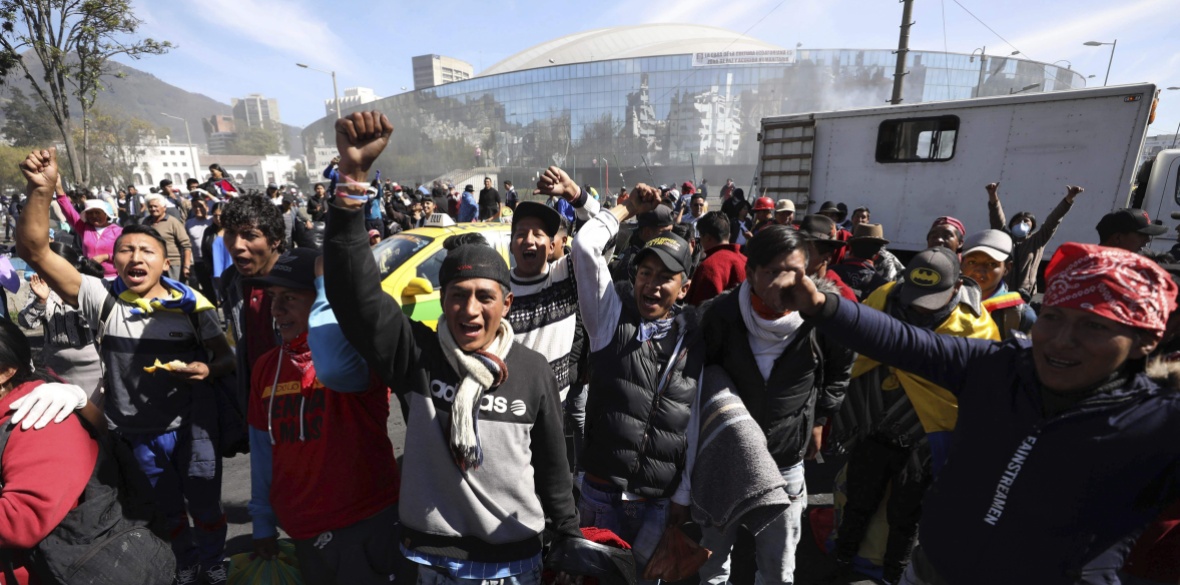This is the last article you can read this month
You can read more article this month
You can read more articles this month
Sorry your limit is up for this month
Reset on:
Please help support the Morning Star by subscribing here
ECUADOR’S government today agreed to restore fuel subsidies it had culled to obtain an International Monetary Fund (IMF) loan, in a deal to stop mass protests that had forced the government to flee the capital.
The deal was struck as a result of mounting pressure, led by activists from indigenous rights organisations, on President Lenin Moreno.
A state of emergency was declared and a military-enforced curfew imposed in a bid to quell the growing dissent.
Under pressure from his new creditors, Mr Moreno had previously claimed that the subsidies — which cost the government $1.3bn (£1bn) annually — were no longer affordable.
But following talks brokered by the UN and the Catholic Church, broadcast live on state television, he was forced to go back on this pledge and reinstate the subsidies.
Protest leaders in the negotiating room applauded as the announcement was made, while the president called the agreement a solution for “peace.”
Immediately after Decree 883 — the executive order axing fuel subsidies — was revealed on October 3, the prices of diesel and petrol increased by up to 120 per cent in some areas.
It led to mass indigenous activism which swept through Quito and forced the temporary relocation of the government to the port city of Guayaquil.
Jaime Vargas, president of the Ecuadorean Confederation of Indigenous Nationalities (Conaie), argued during the talks that “the IMF and the right are managing the country.” And Leonidas Iza, president of the Indigenous and Campesino Movement of Cotopaxi, called for a rethink of the entire economic system so that it “doesn’t fall on the shoulders of the lower classes.”
Mr Iza’s proposals include more taxes on the rich and the seizure of assets from corrupt officials.
He also felt that President Moreno’s claim that exiled former president Rafeal Correa was behind the unrest “belittles the indigenous movement,” which has been responsible through protest for the toppling of three presidents in the last few decades.
According to UN representative Arnaud Peral a new decree will now be drawn up by representatives of the indigenous protest movement in partnership with the government.
Conaie said it will “celebrate” this “victory for popular protest” but emphasised the need for caution until a further agreement is finally ratified.










